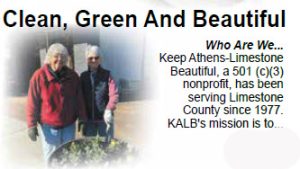 By: Eric Betts
By: Eric Betts
In the intricate mosaic of modern society, the concept of community and mutual well-being emerges as a fundamental pillar, essential for the harmonious development and sustenance of human connections. Through the profound lyrics of Hezekiah Walker’s gospel song “I Need You to Survive,” we are reminded of the indispensable nature of our interconnectedness and the inherent responsibility we bear towards one another.
The Foundation of Mutual Well-Being
The song eloquently articulates a universal truth – “I need you, you need me. We’re all a part of God’s body.” This statement encapsulates the essence of mutual well-being, asserting that individual prosperity is intrinsically linked to the health of the community. It is a powerful reminder that no person is an island, and our successes and failures are, in many ways, shared experiences.
Interconnectedness as a Source of Strength
Walker’s lyrics, “Stand with me, agree with me. We’re all a part of God’s body,” highlight the strength derived from unity. In an era characterized by division, this message serves as a clarion call for solidarity and mutual support. It underscores the notion that our collective well-being is bolstered when we stand together, recognizing the value and importance of each member within the community.
The Role of Leadership in Fostering Community
The song also alludes to the critical role of leadership in nurturing the bonds of community. Leadership, in this context, is not confined to traditional notions of authority but encompasses every individual’s contribution to the well-being of others. It is about recognizing that “You are important to me, I need you to survive,” which implies a leadership of service, compassion, and mutual respect. Effective leadership fosters an environment where every individual feels valued and essential to the higher purpose for living.
A Call to Action for Mutual Support
Perhaps one of the most compelling aspects of Walker’s message is the call to action for mutual support – “I pray for you, you pray for me. I love you, I need you to survive.” It is an acknowledgment of our shared humanity and the power of empathy and kindness. In practicing mutual support, we contribute to a culture of well-being that transcends individual differences, creating a more neighborly and compassionate marketplace.
Conclusion
Hezekiah Walker’s song is a profound reflection on the nature of community and mutual well-being. It serves as a reminder of our symbiotic relationships and the corporate responsibility we share in supporting one another. In a world fraught with challenges, the principles articulated in the song offer a blueprint for building stronger, more resilient communities where every individual is valued, supported, and empowered. It is through this lens of mutual well-being and interconnectedness that we can truly aspire to fulfill a higher purpose together in building a better world, ensuring that the fabric of our communities remains strong and cohesive for generations to come.
By: Eric Betts
Assistant Professor | Course Developer, Hampton University School of Religion






